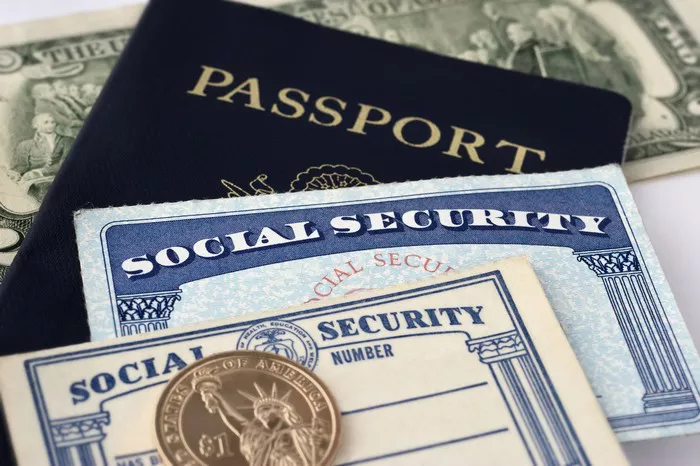Becoming a citizen of the United States is a significant milestone for many immigrants. It not only offers a sense of belonging but also opens doors to numerous opportunities, including the ability to vote, sponsor family members for immigration, and access certain government benefits. However, the journey to citizenship comes with various costs that applicants must consider. From application fees to legal assistance expenses, understanding the financial implications of pursuing US citizenship is crucial for anyone considering this path.
Application Fees
The primary cost associated with applying for US citizenship is the application fee. As of 2022, the fee for Form N-400, the Application for Naturalization, was $640. Additionally, applicants are required to pay an $85 biometric services fee, bringing the total application fee to $725. However, these fees are subject to change, so it’s essential to check the most recent fee schedule provided by the United States Citizenship and Immigration Services (USCIS) before submitting an application.
It’s worth noting that USCIS offers fee waivers for certain individuals who are unable to afford the application fees due to financial hardship. To qualify for a fee waiver, applicants must meet specific income guidelines and provide supporting documentation demonstrating their inability to pay. Fee waivers can significantly reduce the financial burden for eligible individuals seeking citizenship.
Legal Assistance
While it’s possible to complete the citizenship application process without legal assistance, many applicants choose to seek the guidance of immigration attorneys or accredited representatives. Legal professionals can provide valuable support throughout the process, helping applicants understand eligibility requirements, gather necessary documentation, and navigate any potential challenges or complications.
The cost of legal assistance for citizenship applications can vary depending on the complexity of the case and the attorney’s fees. Some attorneys offer flat-rate fees for citizenship applications, while others may charge by the hour. Additionally, nonprofit organizations and legal aid clinics may provide low-cost or free assistance to eligible individuals.
While hiring an attorney or accredited representative may incur additional expenses, their expertise can streamline the application process and increase the likelihood of a successful outcome. For many applicants, the peace of mind and assurance of having professional guidance justify the cost of legal assistance.
English Language and Civics Tests
As part of the naturalization process, applicants are required to demonstrate proficiency in English and knowledge of US civics. This requirement includes passing an English language test and a civics test, both of which are administered during the naturalization interview.
Preparing for these tests may require investing in study materials or enrolling in English language and civics classes. While the cost of study materials can vary, there are many free resources available, including practice tests and study guides provided by USCIS. Additionally, community organizations and adult education programs often offer low-cost or subsidized English language and civics classes to help applicants prepare for the naturalization exam.
For some applicants, particularly those who already possess a strong command of English and a basic understanding of US civics, the cost of preparing for these tests may be minimal. However, for others who require more extensive study and support, the expenses associated with language and civics education can add to the overall cost of the naturalization process.
Travel Expenses
Depending on where they live, applicants may need to travel to attend their naturalization interview or biometrics appointment. Travel expenses can include transportation costs such as airfare, train tickets, or gas for driving, as well as lodging and meals if the appointment requires an overnight stay.
For applicants residing in remote or rural areas, travel expenses can be significant, particularly if they must travel long distances to reach the nearest USCIS field office or application support center. Additionally, individuals living outside the United States may incur even higher travel expenses if they need to travel to the US for their naturalization interview.
To minimize travel expenses, applicants should plan ahead and explore cost-effective transportation options. Additionally, scheduling appointments during non-peak travel times or taking advantage of discounted fares can help reduce the financial burden of travel associated with the naturalization process.
Miscellaneous Costs
In addition to the aforementioned expenses, there may be various miscellaneous costs associated with the naturalization process. These can include fees for obtaining copies of immigration records or other supporting documents, costs for passport photos required for the application, and expenses for mailing the application and supporting materials to USCIS.
While these miscellaneous costs may seem relatively minor compared to the application fee and legal assistance expenses, they can add up, particularly for individuals with limited financial resources. Applicants should budget carefully and anticipate these additional expenses when planning for the naturalization process.
Conclusion
Applying for US citizenship is a significant milestone that can offer numerous benefits and opportunities. However, it’s essential for applicants to understand and prepare for the various costs associated with the naturalization process. From application fees to legal assistance expenses, English language and civics education costs, travel expenses, and miscellaneous costs, the financial implications of pursuing citizenship can be significant.
By carefully planning and budgeting for these expenses, applicants can navigate the naturalization process more effectively and minimize the financial burden associated with becoming a US citizen. Additionally, exploring fee waiver options, seeking low-cost or free legal assistance, and taking advantage of available resources for language and civics education can help make the path to citizenship more accessible for individuals from diverse backgrounds and financial circumstances.


